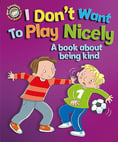April's Value - Respect (孝) - Embrace Equality

April Value of the Month:
Respect (孝)
Introducing the concept of "孝 Respect” to nursery children in the context of the Early Years Foundation Stage (EYFS) can be a wonderful way to help them develop important social and emotional skills. Here's a simple and child-friendly introduction:
The Concept of the value Respect (孝)
Respect (孝) refers to the fundamental virtue of filial piety deeply ingrained in Confucian philosophy and traditional Chinese culture. It embodies the reverence, obedience, and care that children are expected to show towards their parents, elders, and ancestors. This value emphasizes the importance of maintaining harmonious familial relationships, honoring the wisdom and sacrifices of previous generations, and upholding traditional customs and values. Respect (孝) fosters a sense of duty, gratitude, and devotion within the family unit, contributing to social harmony and continuity across generations.
History and Philosophical Roots of Respect (孝)
Roots of Respect (孝) trace back to ancient Chinese philosophy, particularly Confucianism, where it holds a central position as one of the fundamental virtues. This concept emphasizes the importance of filial piety and respect for elders within the family structure. It finds its origins in the teachings of Confucius, who regarded filial piety as the cornerstone of social order and moral conduct. Respect (孝) is deeply ingrained in Chinese culture, shaping societal norms, family dynamics, and individual behavior. It reflects a reverence for tradition, ancestors, and the wisdom of the past, serving as a guiding principle for personal ethics and social harmony.
How we can teach our children Respect (孝)?
Objective:
To help nursery children understand the importance of being kind and respectful to others, it is essential to instill in them the values of empathy, compassion, and consideration for those around them.
Introduction:
Start by gathering the children in a circle and showing them a picture of a family, explaining that families are important because they care for and love each other. Ask them if they know what "孝" (Respect) means, and let them know that it's a special word for being kind and showing love and care to our family, friends, and even to the world around us.
Story Time:
Read a story or show a short video that exemplifies respect, such as a story about a child helping their grandparent or friends being kind to each other.
Discussion:
After the story, engage the children in a simple discussion. Ask questions like:
- "How did the characters in the story show respect?"
- "Why is it important to be kind and respectful to others?"
- "Can you think of a time when someone was kind to you, or when you were kind to someone else?"
Encourage the children to share their thoughts and feelings, making it a safe space for open dialogue.
Activities:
Now, let's do an activity to practice respect together. Provide a few scenarios or role-playing opportunities that help children understand how to show respect. For example, you can have them take turns pretending to help a friend up if they fall, or to say "please" and "thank you" when asking for or receiving something.
Art and Craft:
Engage the children in a simple art and craft activity related to respect. They can create a "Respect Flower" by drawing or sticking pictures of people they respect or love onto a paper flower. Talk about why each person is important to them.
Song or Rhyme:
Sing a simple song or rhyme related to respect. For example:
(To the tune of "Twinkle, Twinkle, Little Star")
"Respect, respect, every day,
We should be kind in every way.
To our friends and family too,
Respect is the right thing to do."
Conclusion:
Finish the session by summarizing the importance of respect, and encourage the children to practice respect in their daily lives. Remind them that showing respect is a way to make the people around us happy and feel loved.
Reinforcement:
Throughout the nursery sessions, continue to incorporate the concept of "孝" (Respect) by modeling respectful behavior and encouraging children to express their feelings and emotions in a respectful manner. Celebrate moments when they demonstrate respect towards one another.
By introducing respect in a fun and age-appropriate way, nursery children can begin to understand and embrace this important value as they grow and develop in their early years.

Crayons on Strike - The crayons come alive in this funny story about respect and kindness towards school supplies! Some children don’t think twice. When they reach out for Red, They hold him with their fingers. And snap him on his head!
 Different is NOT Bad - This book is the perfect tool to for teachers, parents, therapists and school counselors to teach kids that no matter how different we are, and no matter how much we disagree with each other, we can always use compassion and empathy to unite us.
Different is NOT Bad - This book is the perfect tool to for teachers, parents, therapists and school counselors to teach kids that no matter how different we are, and no matter how much we disagree with each other, we can always use compassion and empathy to unite us. David the Dinosaur - David the Dinosaur has had to stay at home for the past few days. Along with all the other forest animals, he’s been stuck indoors because of a bog storm that brought lots of rain and wind. Now the storm has gone and the sun is shining once more, David can leave his home and meet his friends so they can have fun together.
David the Dinosaur - David the Dinosaur has had to stay at home for the past few days. Along with all the other forest animals, he’s been stuck indoors because of a bog storm that brought lots of rain and wind. Now the storm has gone and the sun is shining once more, David can leave his home and meet his friends so they can have fun together.
 The Kids' Book of Diversity - Explores differences in origin, housing, abilities, appearance, family units, culture and more, gently helping children to think about how they are different from, and similar to other people
The Kids' Book of Diversity - Explores differences in origin, housing, abilities, appearance, family units, culture and more, gently helping children to think about how they are different from, and similar to other people
I Don't Want to Play Nicely - Finn struggles with caring for other children at school. He can be selfish and he often plays too aggressively. When the other children complain, Mr Hare has an idea. He chooses Finn as the buddy for Jake, a new boy at school. However, Finn does not help Jake, and the other children become really upset with Finn for being so unkind. Finn is soon left out by the other children and is left feeling miserable and lonely. Can Mr Hare help Finn find a way to make it all better?
 Kind Hands Don't Hurt - Touch and sight are the most influential way a child absorbs the environment and learns to interact with others. Behaviours of parents, carers and family members can sometimes reinforce unkind traits that a child will often model or may be affected by. This beautiful picture book for young and first readers is a perfect way to share the message that "Kind Hands Don't Hurt", and will instil reassurance to a child who has experienced "unkind hands". This book can also be used as an interactive session on all the wonderful things your kind hands can do.
Kind Hands Don't Hurt - Touch and sight are the most influential way a child absorbs the environment and learns to interact with others. Behaviours of parents, carers and family members can sometimes reinforce unkind traits that a child will often model or may be affected by. This beautiful picture book for young and first readers is a perfect way to share the message that "Kind Hands Don't Hurt", and will instil reassurance to a child who has experienced "unkind hands". This book can also be used as an interactive session on all the wonderful things your kind hands can do.
Conclusion
In conclusion, instilling the value of Respect (孝) in early years lays the foundation for building strong character, fostering positive relationships, and contributing to a harmonious society. By teaching children to honor and respect their elders, peers, and community, we equip them with essential life skills that promote empathy, cooperation, and understanding. Through storytelling, role-playing, and modeling respectful behavior, we empower young learners to embody the virtues of filial piety and reverence for tradition. As educators and caregivers, it is our collective responsibility to nurture a culture of respect in early childhood settings, guiding children on a path towards becoming compassionate, empathetic, and socially responsible individuals. Through these efforts, we cultivate a generation that values and upholds the timeless principles of respect, enriching both their lives and the world around them.
.webp?width=200&height=114&name=Hatching%20Dragons-Logo-v2-01-2-1%20(1).webp)







